RHI scandal: Renewable Heating Incentive 'could close'
- Published
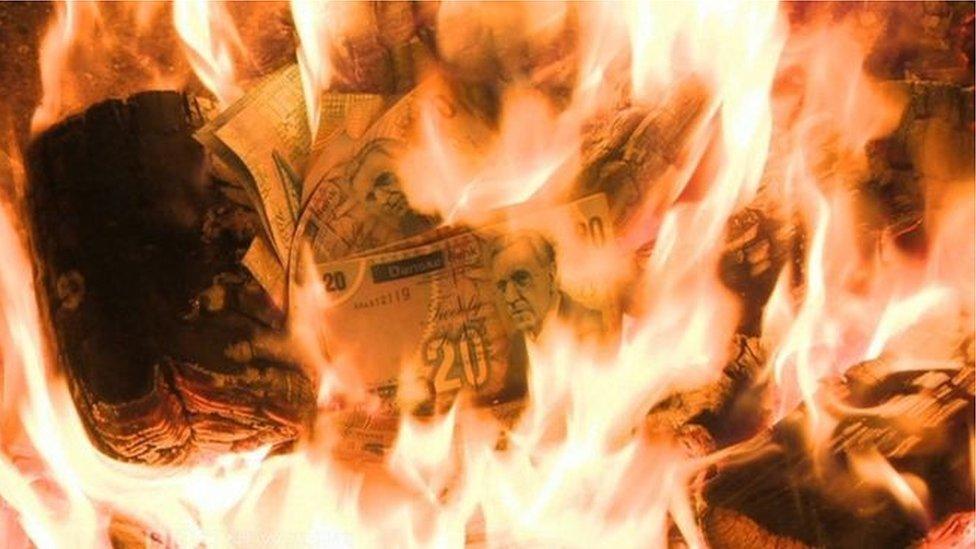
Flaws in setting the scheme's subsidy rate left it open to abuse as claimants could earn more cash the more fuel they burned
The NI Executive is considering the complete closure of its controversial Renewable Heat Incentive (RHI) scheme.
It is exploring whether it can buy out the contracts of RHI beneficiaries due to receive subsidy payments in the next 20 years.
First Minister Arlene Foster this week survived a no-confidence vote over the flawed design of the scheme, which is expected to run up a £400m overspend.
Buying out the recipients would incur a cost, but would reduce the final bill.
The RHI was set up by the Department of Enterprise, Trade and Investment (Deti) under the stewardship of Arlene Foster in 2012 to encourage businesses and other non-domestic users to move from using fossil fuels to renewable heating systems.
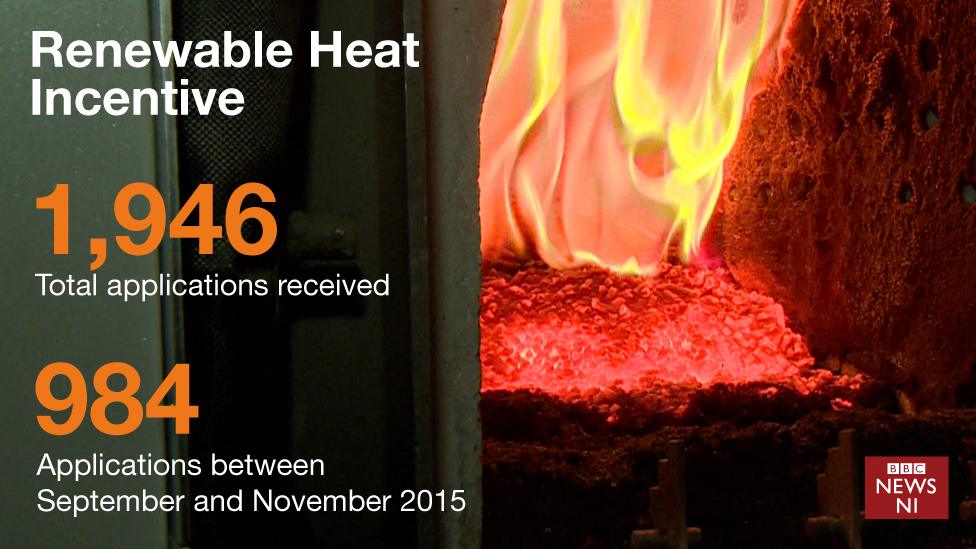
But flaws in setting the scheme's subsidy rate left it open to abuse as claimants could earn more cash the more fuel they burned.
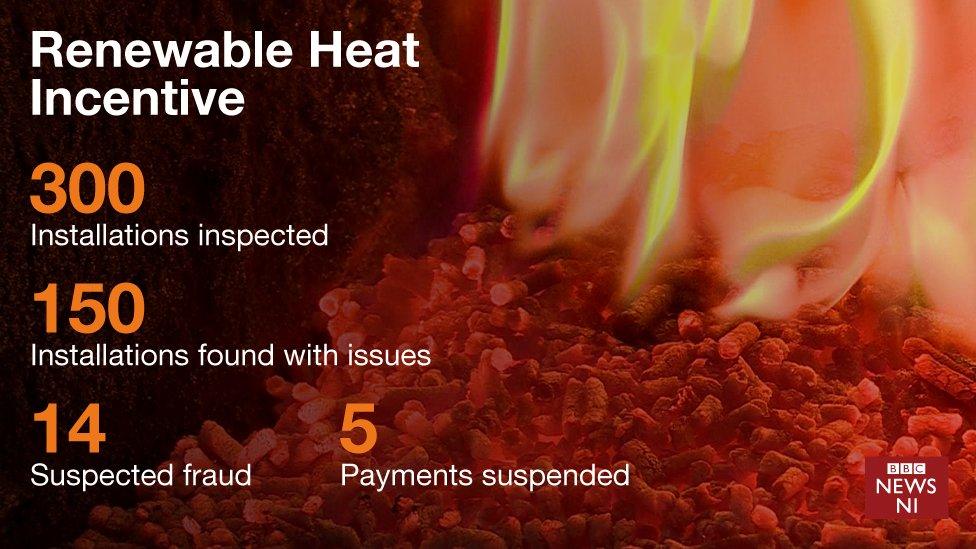
The scheme was finally halted early this year, by which time its overall cost had reached £1.18bn.
About £20m a year for the next two decades could be taken from the Northern Ireland budget to cover the overspend.

Renewable Heat Incentive scheme in numbers
1,946 applications were approved under the non-domestic RHI scheme - a 98% approval rate
984 were received in just three months - September to November 2015 - after officials announced plans to cut the subsidy but before the change took effect
The assembly's Public Accounts Committee was told that a subsequent independent audit had found issues at half of the 300 installations inspected
14 of those fell into the most serious category where fraud was suspected
Payments to five of these 14 sites have been suspended

In an interview with the BBC's Stephen Nolan on Thursday, Jonathan Bell, a former enterprise minister, broke ranks with his DUP colleagues and made a number of sensational claims about how the controversial scheme was handled.
In the tumultuous fall out Mrs Foster, who is now first minister, denounced a "trial by television" as she survived Monday's no-confidence vote in the Assembly.
Reduce subsidy rate?
Watch the key clashes from Monday's heated debate in Stormont
The potential cost of a buy-out policy is not yet clear.
It would likely be focused on compensating recipients for the costs of buying and installing boilers.
The executive would prefer buy-outs to be voluntary but is also understood to have taken legal advice from the Attorney General about making them compulsory.
'Fatal flaw'
The other option being considered is keeping the scheme open but reducing the subsidy rate.
Ulster Unionist leader Mike Nesbitt said he favoured the scheme remaining open but said a windfall tax should be imposed on those who had abused it.
"It acknowledges the fact that this was a bad scheme, badly thought out and it had a fatal flaw in it," he said.
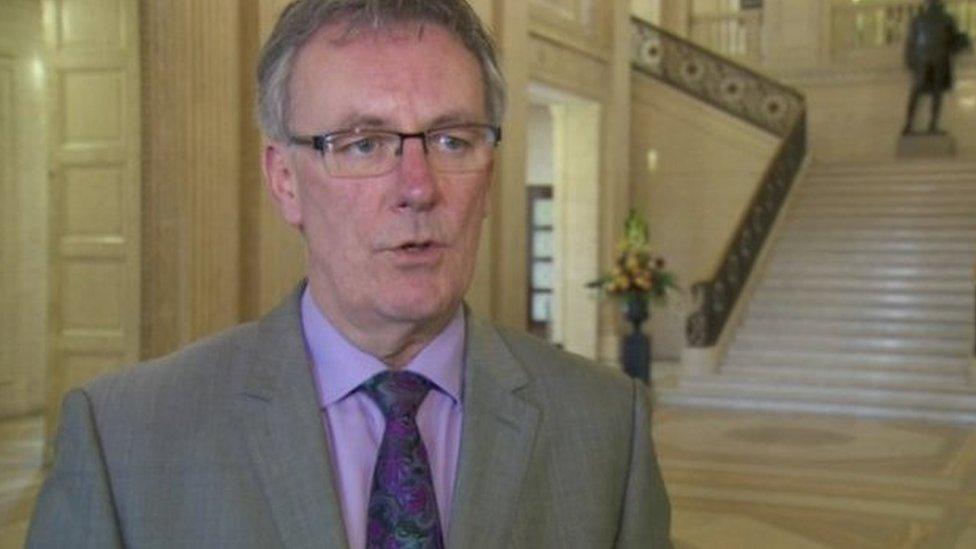
Mr Nesbitt has written to the Assembly Speaker Robin Newton asking him to stand down after Christmas over his handling of an Assembly debate on the RHI scheme
"The fundamental principle of having a renewable heat incentive to try and encourage people off fossil fuels onto renewables is sound and we want to continue with that rather than close it all down."
Mr Nesbitt has written to Assembly Speaker Robin Newton asking him to stand down after Christmas over his handling of this week's Assembly debate on the RHI scheme.
Mr Newton allowed First Minister Arlene Foster to make a statement on the scheme despite it not having the support or approval of Deputy First Minister Martin McGuinness.
An Assembly spokesperson said: "The Speaker intends to reply directly to Mr Nesbitt in the New Year."
The SDLP's Nichola Mallon said her party wrote to Mr Newton on Tuesday and drew his attention to the "fact that we believe that there is a significant issue of confidence in his role".
"We have asked that he consider his opinions," she said.
"We have done so because, unfortunately, I think, when the speaker increasingly becomes the story, there are issues, but in respect of Monday, we disagreed with his ruling."
Later, SDLP leader Colum Eastwood said the speaker had "lost confidence of the assembly and must stand down."
In a statement, the DUP said: "The speaker is independent of party politics and such calls are not a matter for the DUP.
"It is clear, however, that some parties have nothing to offer other than resignation calls and cheap walkout stunts."
TUV leader Jim Allister said a rating system could be introduced for boilers operating under the scheme.
"I would have thought that it would be possible to rate these boilers, to make them rateable, we've done that with wind turbines, you could do the same with these boilers and in that way recoup some of the excessive profits," he said.
'Smoking gun' email?
On Tuesday Mr Bell, who was suspended from the DUP following his Nolan interview, released an email to the head of the civil service, external which he said held "critical information" about the scheme.
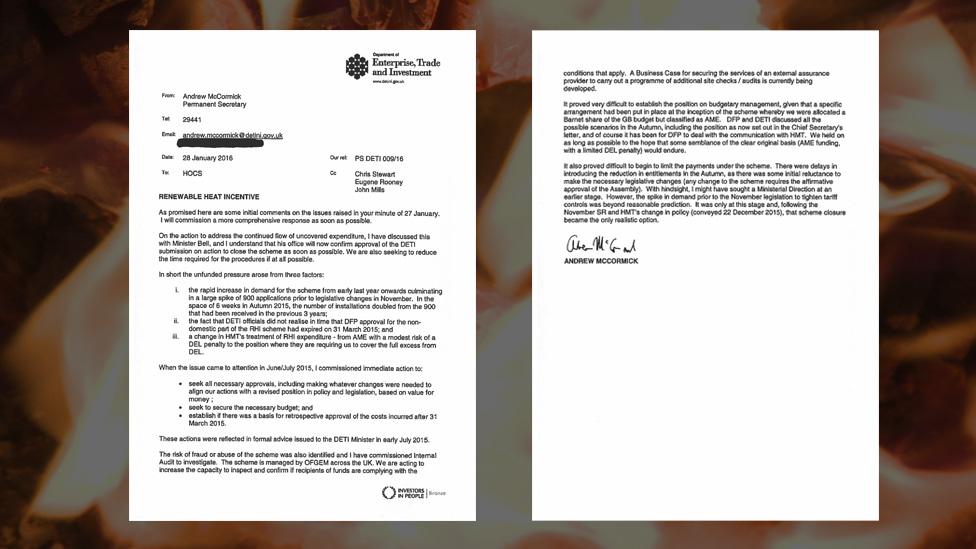
The email was released on Monday
The email shows that the permanent secretary for the department responsible for the RHI scheme regarded the spike in applications in the autumn of 2015, which accounted for a large proportion of the projected £400m overspend, as "beyond reasonable prediction".
The former Enterprise Department Permanent Secretary, Andrew McCormick's, assessment came in an e-mail dated 28 January 2016.
Mr Bell has blamed the delay in bringing down the costs of the scheme on interference by DUP advisers - a charge rejected by the First Minister, Arlene Foster.
In the e-mail Mr McCormick said the former minister Mr Bell was advised of the mounting problems with the heating scheme in early July 2015.
- Published7 November 2017

- Published23 October 2019

- Published16 December 2016
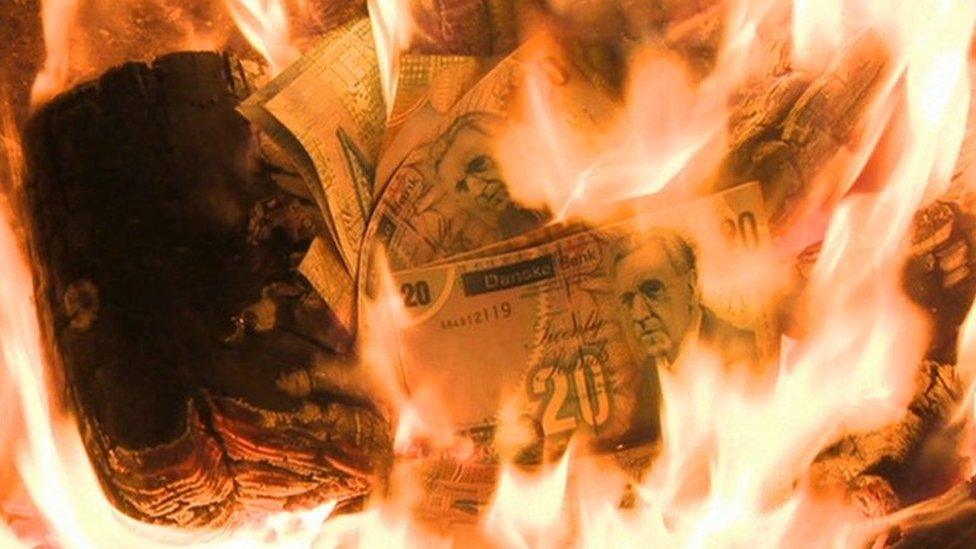
- Published16 December 2016